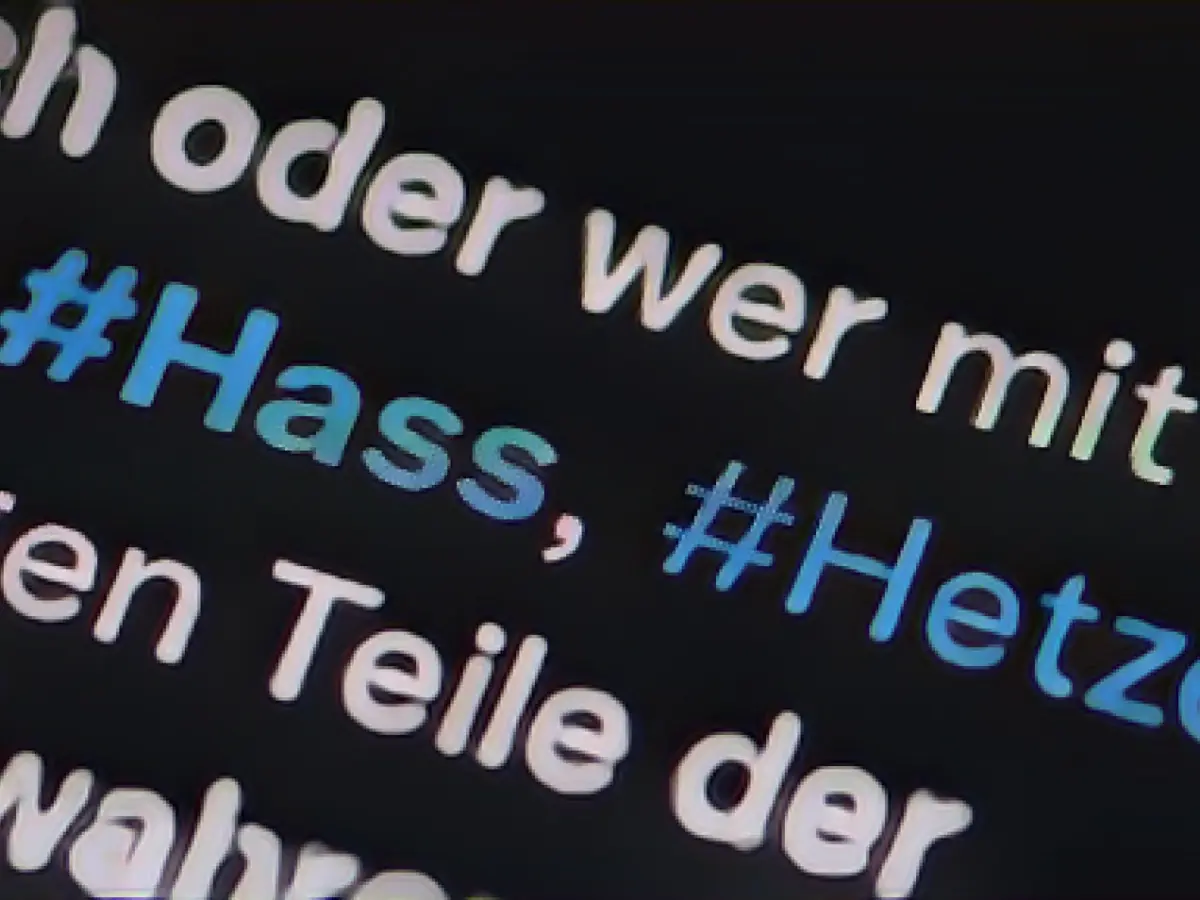Unprecedented Increase in Online Hate Speech in Saxony
The Saxon police have seen a significant surge in online hate speech cases this year, with over 488 incidents reported so far. This is a remarkable jump from the 316 cases recorded last year and the 213 cases from the year prior.
Just last Thursday, Saxony saw searches and interrogations as part of the Europe-wide day of action against hate speech. Nine men and one woman, ranging from ages 21 to 60, are now under investigation.
The majority of the hate speech occurred on the right-wing political spectrum (280 cases), followed by left-wing extremism (54 cases). Additionally, hate speech related to foreign and religious ideologies, as well as other attributions, were also reported (7 and 8 cases, respectively, with 139 other cases).
Curbing Hate Speech Online: A Multifaceted Approach
The Saxon police urge internet users to actively combat hate speech by reporting such incidents, saving screenshots as evidence, and saving user profile information. This crucial information helps the authorities to track down perpetrators and bring them to justice.
The Causes and Consequences of Online Hate Speech
Online hate speech has complex roots, and addressing it requires diverse strategies. Factors contributing to the growth of hate speech include:
- Historical context: The memory of Germany's past, particularly the rise of the Nazi party, creates a heightened awareness of hate speech and shapes the country's legislative response.
- Online anonymity: The ease of posting anonymously online can embolden individuals to express hateful views and allows hate speech to spread quickly on social media platforms.
- Political polarization: Germany's strong political views can create a breeding ground for online hate speech, particularly in heated debates over immigration policies.
To effectively combat online hate speech, measures should encompass:
- Strengthened legal frameworks: Stricter hate speech laws help protect free speech while preventing the spread of hate speech.
- Enhanced law enforcement and technology: Special task forces, technology, and cooperation with social media companies can help authorities uncover the identity of perpetrators and gather evidence.
- Public awareness campaigns: Encouraging constructive dialogue and educating the public about the consequences of hate speech can decrease its prevalence.
Combating online hate speech in Saxony is a multifaceted challenge that requires bold action and ongoing dedication to upholding democratic society and fostering respectful online discourse.







